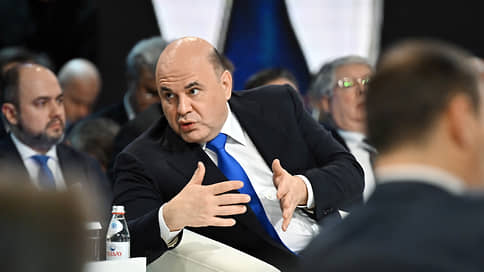Cooperation with expansion
[ad_1]

The Prime Ministers of the countries of the Eurasian Economic Union (EAEU) held the first meeting of the Intergovernmental Council this year in Almaty. We discussed issues of digitalization, which, as practice has shown, are difficult to solve due to different ideas of countries about information security, and also looked for ways to establish industrial cooperation, highlighted by sanctions against the Russian Federation. The mechanism for subsidizing loans for such projects is still being worked out, but there is already talk of the need for other instruments, as well as the desire for cooperation with countries outside the “five”. Such an expansionary approach is already being implemented in the agricultural sector: the prime ministers have made decisions to develop the current project for accelerated deliveries of allied agricultural products – now also to the markets of India, Iran and the United Arab Emirates.
The first meeting of the heads of government of the EAEU countries was traditionally held in Kazakhstan. Arriving in Almaty on Thursday, the prime ministers first gathered in a narrow format to discuss the issues submitted to the meeting of the intergovernmental council behind closed doors. After this meeting, only the priorities for further work were named: Prime Minister of the Russian Federation Mikhail Mishustin, as chairman of the intergovernmental council (this year, the chairmanship of the EAEU passed to the Russian Federation), outlined a unified policy in the field of food security, the creation of common energy markets and a new transport and logistics infrastructure, building relations with “external” partners, as well as the development of technological potential and digital transformation.
The last point of the premiere was discussed separately – within the framework of the Digital Almaty forum. They talked, in particular, about the creation of a digital competence center for major joint initiatives in this area and the introduction of the “regulatory sandbox” regime necessary for such work.
For the time being, however, much more “mundane” issues are being resolved in the EAEU – according to the Prime Minister of Kazakhstan, Alikhan Smailov, it is necessary to create conditions for cross-border electronic document management and transfer all permit forms to an electronic format.
It should be noted that in practice, such undertakings often transform into lengthy discussions – for example, on entering the VIN numbers of commercial vehicles into a common union database, on the recognition of an electronic digital signature (see “Kommersant” dated October 12, 2021), on the launch of a general register of legal entities. To achieve a solution, Mikhail Myasnikovich, Chairman of the Board of the Eurasian Economic Commission explained, is often not possible due to the principled positions of countries on information security issues “under the guise of protecting the interests of sovereignty” – he suggested that in the future this topic should be reflected in a special agreement.
In a more formal setting, at a meeting of the intergovernmental council, the prime ministers spoke about industrial cooperation, which, against the backdrop of sanctions, has become one of the main topics. In December 2022, the presidents of the five countries approved a mechanism for subsidizing loans for such projects (we are talking about the use of 10% anti-dumping and other countervailing duties for these purposes – the volume of this fund was estimated at $ 20-30 million per year; see “Kommersant” dated October 24). The priority industries for such projects are the automotive industry, the chemical industry, microelectronics, aircraft and shipbuilding.
As Deputy Prime Minister of the Russian Federation Alexei Overchuk explained after the meeting, it is planned to prepare the necessary regulatory framework by May for approval at a meeting of the heads of the EAEU countries. In this case, funding will begin as early as 2024.
It should be noted that, although the mechanism is still being prepared for launch, Belarusian Prime Minister Roman Golovchenko is already talking about its insufficiency. According to him, other instruments are also needed, the participation of national and Eurasian development institutions (with the linkage of their work with strategic goals, since without this “it will be very difficult to move from a trade union to a full-fledged economic union”), as well as the establishment of technological cooperation with “friendly » countries (China, Vietnam, Iran, Egypt, Indonesia, UAE).
There is also a request for cooperation in the agro-industrial sector: as follows from the words of Alikhan Smailov, the creation of joint projects in this area, along with the removal of barriers and the predictability of the introduction of restrictions on supplies, is seen as a way to curb food prices (over the year in the EAEU they rose on average by 13%).
In anticipation of further growth in agricultural production (according to the results of 2022, the increase is estimated at 5%), Mikhail Mishustin suggested increasing the export of agricultural products.
Including within the framework of the Eurasian Agroexpress (a project for accelerated deliveries of agricultural products to Uzbekistan and China, 500 thousand tons were transported in a year) by including new countries in it and solving the problem of restrictions on supplies to China. On Friday, the prime ministers have already agreed to include in this project the transportation of products to India, Iran, the United Arab Emirates and Turkmenistan along the North-South transport corridor.
[ad_2]
Source link






